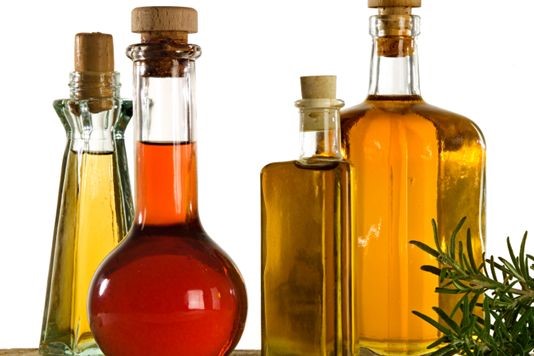EU fails to ban olive oil dipping dishes following public outcry

Power to the people! The EU has backtracked on plans to ban olive oil jugs and dipping bowls from restaurant tables, following public protestations.
From traditional to ‘tamper-proof’
In a controversial move, the EU declared last week that olive oil presented at a restaurant (or pub, bar, hotel, etc.) must be in a pre-packaged, factory bottle with a tamper-proof dispensing nozzle. So from the beginning of next year, diners wouldn't be able to swirl their bread in a terracotta dipping bowl, or pour olive oil straight from a refillable jug.
Hygiene was one of the reasons for the ban, as well as a desire "to better promote quality categories of olive oil" – every factory bottle would carry proper labelling of its origin in line with EU standards, so that diners know exactly what they’re eating.
U-turn
But just over a week later Dacian Ciolos, the European Commissioner for agriculture, officially withdrew the proposition, quoting “misunderstanding” by restaurant diners as the reason why.
"It was a measure intended to help consumers, to protect and inform them. But it is clear that it cannot attract consumer support," he said yesterday (23rd May). The backtrack was a move welcomed by Owen Paterson, the Environment Secretary, who told The Daily Telegraph that the EU’s olive oil rules were “arbitrary” and that “common sense has prevailed”.
Even DEFRA condemned the decision when it was first announced, citing the inevitable “unnecessary waste” caused by manufacturing more bottles. And food writer, and proprietor of Moro restaurant in London, Sam Clark, who currently serves Spanish olive oil in dipping bowls with bread as soon as customers are seated, was outraged. “It is very upsetting,” he said at the time. “Haven’t they already done enough damage to artisan products?”
What you said
Our Facebook fans will also welcome the EU's latest decision. Sally Fleming said that it was a "crazy" idea and offered to sign a petition against it; Robin Frean described it is "a baffling waste of time and money by Brussels"; and Nikki Nye suggested that instead of getting an intrusive EU involved, "local inspectors could require all condiments to be changed and refilled each day".
One Facebooker, however, did see the point of the EU’s decision. Simon Sackett said that the original proposal was ‘"entirely necessary" because "many places probably refill oil jugs with cheaper oil than is advertised… or don’t clean their containers properly".
We would have cheated anyway
There was an easy way to get around the olive oil dipping dish ban, had it gone ahead. We patiently probed EU officials last week and were eventually told that the new regulation "only relates to 100% olive oil", meaning that the addition of salt, herbs and the like would automatically exempt the product from the rule. So bottles of chilli oil or a dipping dish of olive oil with a sprig of thyme on top would, in theory, have been allowed.
Bendy bananas
The EU has a long history of dabbling with regulation around our food. Back in 2008, it issued even stricter guidelines over the appearance of fruit and vegetables (the first regulations were introduced in the 1980s). It heartlessly damned wonky-shaped fruit as ‘Class II’ products, meaning they rarely made it to the supermarket. Even overly-red apples were rejected, as well as very bendy bananas. But due to outcries over the resulting food waste, at least 25 of the EU’s 36 directives on the issue were later rejected.
Cucumbers have perhaps taken the heftiest hit from the EU. The poor things won’t make it into your salad if they have a bigger bend of 10mm for every 10cm of length.
Then there was the how-sugary-is-your-jam episode, which deemed that jam could only be labelled as such if it had more than 60% sugar in it. British jam makers such as Clippy McKenna were told that their product had ‘too much fruit’ in it to be labelled jam, and were in danger of having to call it ‘fruit spread’ instead. After 18 months so, the sugar quota was thankfully dropped from 60% to 50%.
Like the bendy banana and sugary jam rules before it, the EU’s olive oil directive will also quietly disappear into the background, signalling yet another victory for the people over Brussels.
What did you think of the EU’s proposed regulation? Unnecessary interfering, or responsible health and safety? Have your say in the poll below then share your thoughts in the Comments box.
You might also like
Most Recent
Comments
Be the first to comment
Do you want to comment on this article? You need to be signed in for this feature








